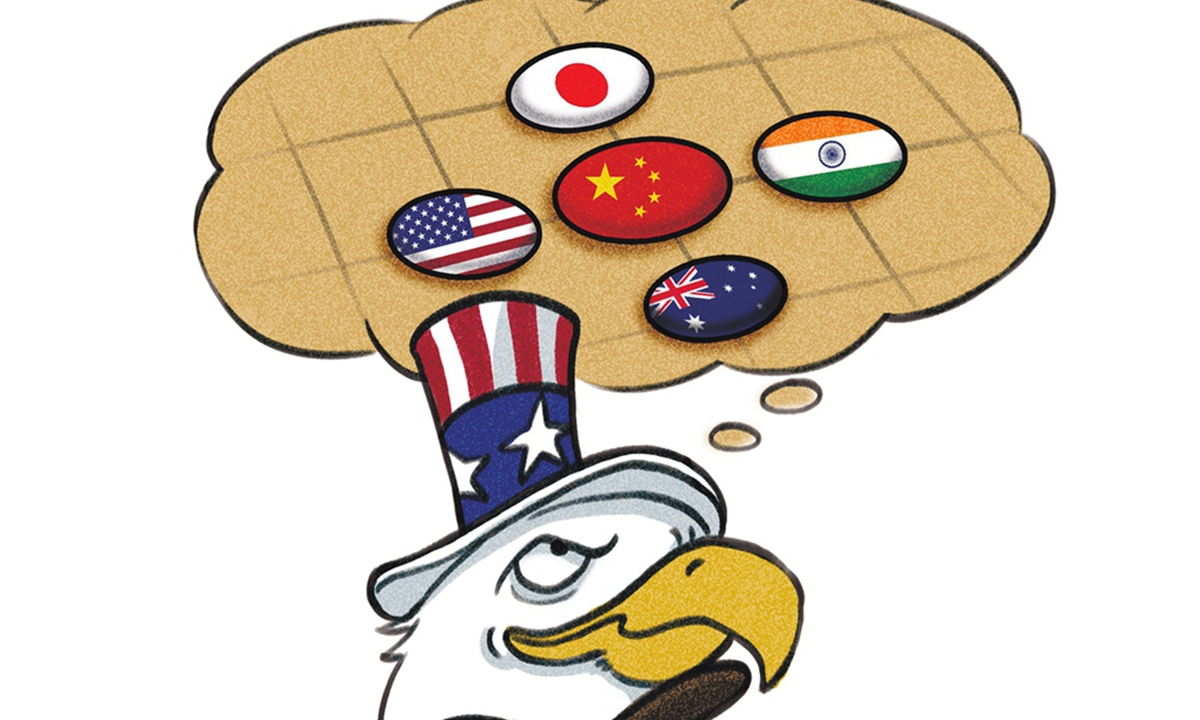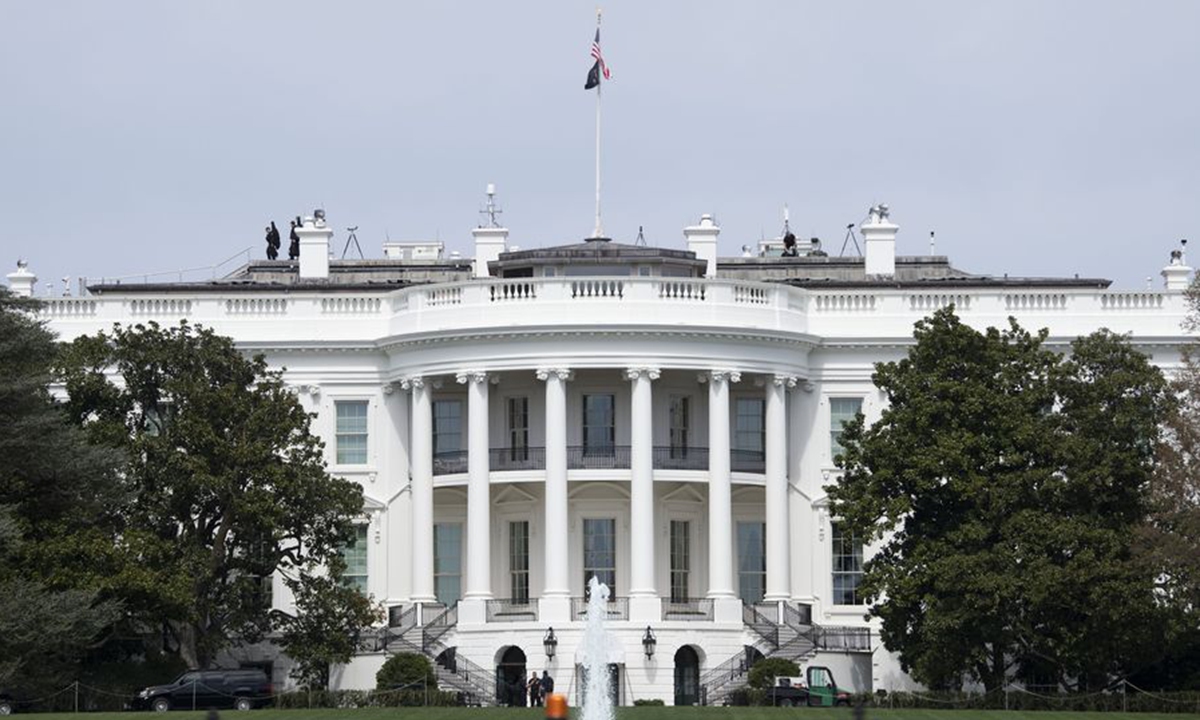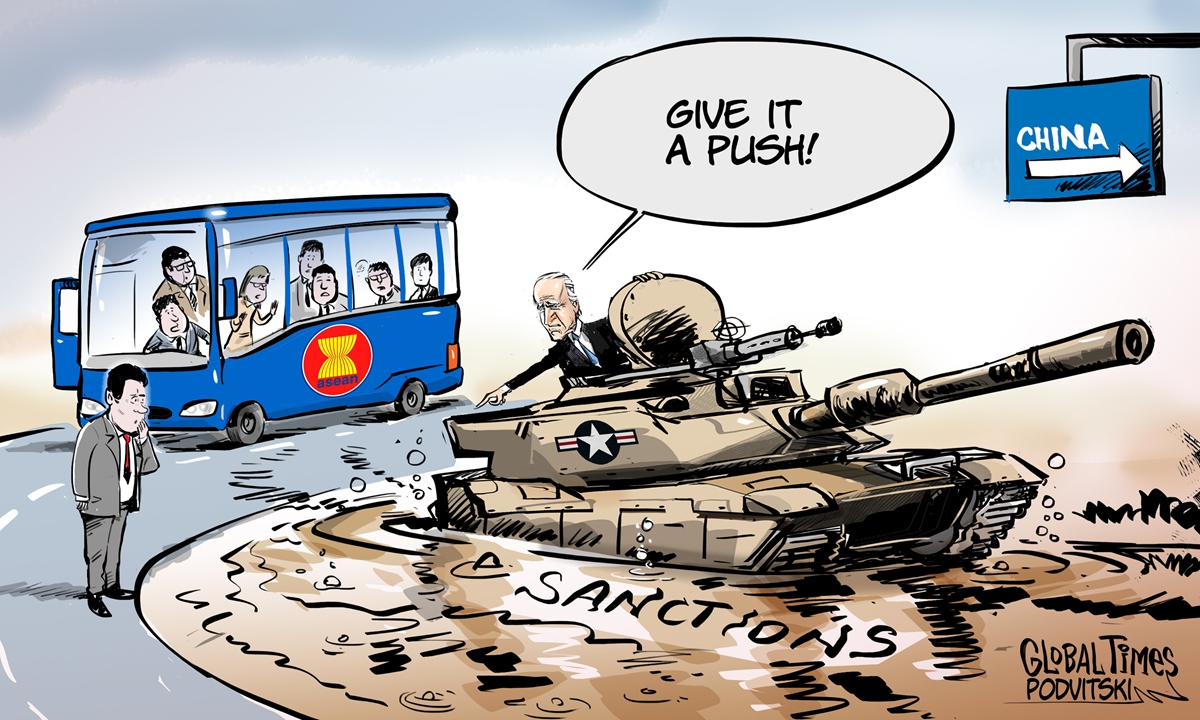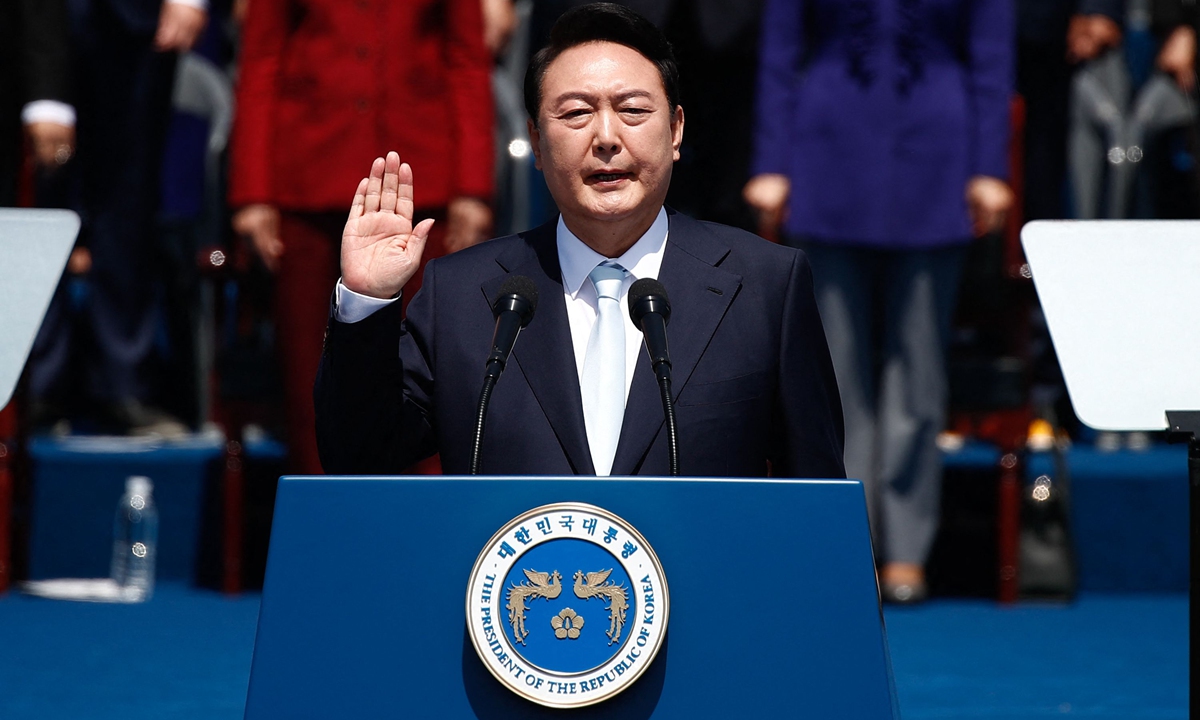 Obama's Manila visit beefs up Philippines
Obama's Manila visit beefs up Philippines
US President Barack Obama is now in Manila, the last stop of his Asia
tour, after his visit to Japan, South Korea and Malaysia. This is
Obama's first visit to the Philippines in more than six years since he
took office in January 2009. He hopes to reiterate and reinforce the US
"pivot to Asia" strategy that has been struggling to gain footing.
Against
the background of a drastically changing geopolitical landscape in the
Asia-Pacific region with growing Chinese influence, the US is keen to
rally its Asian allies to maintain and promote its status as an
Asia-Pacific country.
The Philippines is among the most
aggressive claimants of the South China Sea, and Washington keeps
reassuring this state, which is a stronghold on the "first island chain"
around China.
Apart from counterbalancing an increasingly
assertive China by intensifying strategic cooperation with and pledging
economic assistance to China's surrounding countries, Washington also
attempts to remold its image in the mind of its Asian allies, in
particular when its European allies are losing confidence in the world's
greatest power because of the
Ukraine crisis.
Now
that London is behaving half-heartedly, Paris and Berlin have shown
reluctance to impose harsher sanctions against Moscow over its
integration of Crimea, Obama intends to exhibit his firm commitment to
reassuring all allied nations by aiding the Philippines, a treaty ally
that is both economically and militarily backward.
Defense and security issues are dominating Obama's journey in Manila and economic concerns are another area on his agenda.
Philippine
Defense Secretary Voltaire Gazmin and US Ambassador Philip Goldberg on
Monday morning signed a 10-year deal, allowing a bigger US military
presence in the Philippines and better access of US troops to the
country's military bases, ports and airfields.
The Philippines
was once home to two of the largest US naval and air force bases outside
the continental US territory till the early 1990s. Now in light of
China's increasing assertiveness in the South China Sea, the White House
is sparing no effort to beef up its military presence in one of the
critical links around Beijing.
More than 100 left-wing activists
demonstrated at the US embassy in Manila to oppose Obama's visit and the
military accord on April 23, despite the expectations from the
Philippine military, business sector and local media for more US
military equipment including advanced ships and aircraft .But it should
be noted that the small-scale protest is a routine affair and therefore
Aquino's government is unlikely to pay special heed to it.
Also on the agenda for Obama's Manila visit is economic cooperation and financial assistance.
The
New York Times commented that given the wide spectrum of security
difficulties the US is facing in Asia, promoting trading collaboration
might be the best way for Obama to build credibility in his "rebalancing
toward Asia" policy.
There is no denying that economic interaction with its Asian partners will help increase the US capital export.
Nevertheless,
for the Philippines enmeshed in long-term economic debilitation, the
number of cooperation programs the White House will offer may be quite
limited.
Manila is in no way comparable to Tokyo or Seoul, the
most vital economic pillars among the US' Asian allies, a pragmatic
Washington will not invest too much.
Obama's pledges of economic packages, if there are any, will be more a show than substantial assistance.
Consequently,
the Philippines will get little practical interests except some
psychological comfort from its US ally, since Obama also refrains from
drawing another red line on possible military action against Beijing.
Washington
has deliberately been scheming to attract Manila to its geopolitical
game in the Southeast Asia in a bid to continue the territorial rows
over the South China Sea and counterbalance China's rise.
Compiled by Global Times reporter Wang Xiaonan, based on an
interview with Ji Qiufeng, professor of international relations at the
School of History, Nanjing University.
Philippine pact gives US access to air, sea bases

US President Barack Obama
chats with Philippine counterpart Benigno Aquino as he signs the guest
book at the Malacanang Palace in Manila on Monday.[Photo / Agencies]
Obama backs Manila's decision to seek int'l arbitration of territorial dispute
Washington secured a key part of its pivot to the Asia-Pacific region with a decadelong defense pact with Manila on Monday, as observers said the militarization of the region is playing with fire and makes a diplomatic settlement much harder.
The US-Philippine Enhanced Defense Cooperation Agreement was signed on Monday at the Defense Ministry in Manila shortly before Obama's arrival on the last stop of his four-country Asian tour.
The pact gives US forces temporary access to selected bases and allows them to base fighter jets and ships in the Philippines, as "part of a rebalancing of US resources towards fast-growing Asia and the Pacific", Reuters said.
The US goal in Asia, Obama said on Monday, was not to contain or counter a rising China. However he "backed Manila's efforts" to submit territorial problems with China to adjudication by international arbitration, AFP said.
The rhetoric has been charged recently between Beijing and Manila as the Philippines tried to boost its claims over China's Huangyan Island and Ren'ai Reef in the South China Sea and sought greater involvement from Washington.
"Manila's efforts have dovetailed with Washington's intention to shift to the economically booming Asian region, partly as a counterweight to China's growing clout," Associated Press said.
Rommel Banlaoi, an analyst at Manila's Center for Intelligence and National Security, told Reuters that relations between the Philippines and China will deteriorate further as China "is averse to any Philippine government initiative to involve the US in its security agenda".
"We are strengthening our relationship with the US at the expense of our relationship with China," he said.
Jia Duqiang, a Southeast Asian studies expert at the Chinese Academy of Social Sciences, said the pact serves as a component of "the Obama administration's ongoing plans to militarize issues that are rumbling in the Asia-Pacific region", and this is "actually playing with fire".
"We have seen Obama press the need for defense cooperation with US allies in almost every stop of his Asian trip, which illustrates Washington's unchanged double approach in its dealings with China — dialogue plus coercion," Jia said.
Responding to the pact on Monday, Beijing called for "relevant countries" to build more bridges to facilitate trust, regional peace, stability and prosperity.
"The US has said on different occasions that Washington has no intention of coercive moves against China, and it is necessary to examine the follow-up remarks and actions," Foreign Ministry spokesman Qin Gang said at a news conference in Beijing on Monday.
The defense deal was signed and announced "when tensions between China and its neighbors have been rising" and it is "the biggest policy achievement" of Obama's trip to Asia, the Washington Post commented.
The Philippines was an American colony from 1898 to 1946, and their defense treaty, signed in 1951, is the oldest US treaty alliance in Asia. During the Cold War the US had a large military presence in the Philippines at Clark Air Base and Subic Bay Naval Station.
But a greater US presence in the Philippines is a heated topic. Fiery debates in the Philippine Senate ultimately led to closing Subic Bay Naval Station, the last permanent US base in the country, in 1992.
Qu Xing, president of the China Institute of International Studies, warned that rising tension concerning the South China Sea has radicalized public sentiment in some countries, which makes rational discussion over the issue at the diplomatic table "much harder".
Wu Shicun, president of the National Institute for South China Sea Studies, said a number of China-related remarks made by prominent US figures, including Defense Secretary Chuck Hagel, who visited China earlier this month, have sent a clear signal that "Washington is backing the Philippines".
"These remarks run counter to the official US position that it does not take a position over the South China Sea issue," Wu said.
Obama said at a news conference on Monday, "We welcome China's peaceful rise. We have a constructive relationship with China."
But Jia from the Chinese Academy of Social Sciences, said the Philippines, more so than Japan or Vietnam, has fully endorsed the US strategy of containing China.
"Beijing should never have high expectations of Washington taking a fair approach over the South China Sea issue," Jia said.
"The tension in the South China Sea will probably worsen because Washington is determined more than ever to contain China in this regard," Jia said.
-
By Zhang Yunbi China Daily
Containment unlikely in Asian geopolitics
Is it for containing China? This is a question that will be haunting the
whole of East Asia during US President Obama's ongoing trip to this
area. Tokyo and Manila hope it is, but the facts will prove it is only
their wishful thinking.
Obama's four-country visit should have
been done last October. But it was delayed because of the debt ceiling
crisis and government shutdown. When voices about the US declining are
rising dramatically, the top priority of Obama's trip is to reassure its
Asian allies to keep their faith in Washington.
Washington
keeps declaring that it doesn't pick sides in terms of the Sino-Japanese
and Sino-Philippine territorial disputes. But it explicitly shows favor
for Tokyo and Manila when frictions in these areas take place.
Washington
tries to kill two birds with one stone by supporting its allies while
avoiding irritating China, a delicate way to maintain the balance
between business profits and political influence.
Obama putting off the October trip has already sent a signal that Asian allies must make way for US domestic affairs.
While
in order to revive its declining economy, the US depends much more on
China than these allies. Washington cannot bear a strategic
confrontation of containment and counter-containment with China.
China's
Asia policy keeps holding the strategic initiative with restraint.
Washington and its allies' arrangements to contain China will probably
end up in vain. They have no chips to bargain with China. In fact, both
the US and its allies are calculating how to benefit from China's
growth.
China's rise has become the biggest variable in the
Asia-Pacific strategic framework. China shows to the world that it is
committed to utilizing its power in a peaceful and restrained manner,
and the US has also basically recognized a stronger China.
These
two new developments are shaping a new Asia-Pacific order during
China's rise. There will be a new balance in this area, and no countries
are able to break it.
Obama's rebalance toward Asia is a
rearrangement of the US presence in this area to maximize its interests.
But the US is not powerful or ambitious enough to contain China in this
area, or even strangle China before it rises to be a global power.
It
is just an illusion for some Asian countries to contain China. In fact,
there are many controversies concerning China's rise within the US-led
alliance.
Japan and the Philippines want a tough stand against
China, but are also worried that Asia might become the victim of a Cold
War-like confrontation between the US and China.
Containing China
is a plausible option for several Asian countries, but it will be
proven impossible in the real Asian geopolitical game.
Obama
should know that his actions and remarks during this trip will keep
making headlines, but he had better not stir up a situation that is even
beyond his own control.
Related posts:
US president barack obama may have congratulated himself in private
for apparently pulling off a difficult balancing act, but if so, he
is...
US President Barack Obama steps from the Air Force One as he
arrives in Tokyo, Japan on April 23, 2014. Obama began a four-country
trip...


.jpeg)





